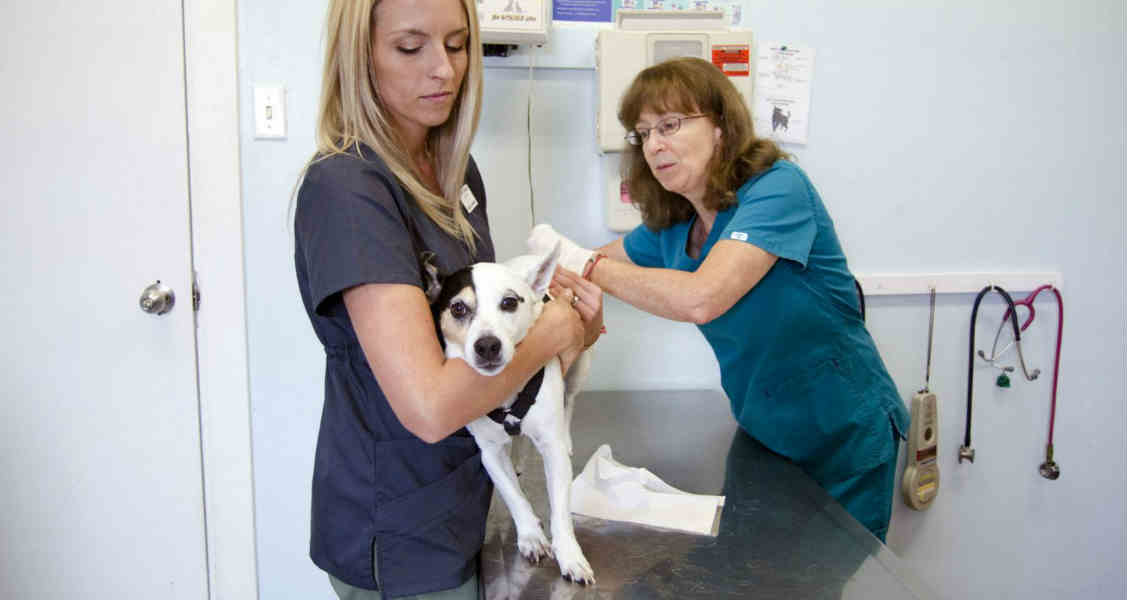Top 5 Preventive Measures for Pets You Shouldn’t Skip
By: Jody Smith | Reviewed by Dr. Clayton Greenway, B.Sc., DVM | May 6, 2018

It can be easy to fall into the pattern of not putting much thought into your pet’s health until something goes wrong. But it’s better for your pet if you’re proactive. And that means taking a wellness approach, taking care of things before they reach the emergency stage.
Unfortunately, many pet owners try to save a few dollars by skipping out on some of the routine care their vet recommends or avoiding getting a vet’s opinion altogether on issues they believe they can handle for themselves. Ironically, these top five most frequently avoided preventive measures are in fact incredibly cost-effective due to the severity of the conditions they can prevent.
1) Dental Care
Dental health is important for pets just as much as it is for human beings. Routinely brushing your pet’s teeth, while challenging to get your pet accustomed to, is overlooked by many pet owners. Even with teeth brushing, your pet will need dental checkups as part of their regular care, and may at some point require some professional teeth cleaning. It is infinitely less expensive to shell out for pet toothpaste and dental cleaning than to pay for the compounding costs of dental disease, infection and tooth removal.
Some of the unpleasant conditions you can help protect your pet from including periodontal disease, abscesses, and oral tumours. Untreated, dental disease can lead to life-threatening organ damage and tooth loss.
2) Flea and Tick Control
You want to poison the fleas and ticks but you don’t want to poison your pet. Unfortunately, most over-the-counter treatments are at best, ineffective, or at worst, contain toxic ingredients. And if you use such products on a regular basis, the risk for health issues rises.
Flea collars are an example of a well-meant idea gone wrong. They don’t offer much protection beyond the area of your pet’s neck, and since you and your family presumably have considerable physical contact with your pet, the pesticides on the collars could have a negative effect on all of you too.
Most DIY flea repellent recipes are ineffective, and some that suggest essential oils may be dangerous.
You can avoid the guesswork, and therefore a good deal of risk if you go to your veterinarian for advice as to an effective and safe flea repellant.
3) Blood Work and Other Routine Tests
Routine exams can uncover health problems in your pet in the early stages. These exams will also enable your vet to suggest any preventive treatments your particular pet might need, like dental care, parasite and pest control, weight control and vaccines. Nutritional recommendations can also come into play.
As your pet ages, it becomes even more important for wellness blood work and other routine tests to be performed. If your pet is otherwise healthy, it can be tempting to skip that yearly checkup. But you are gambling with the possibility of letting treatable conditions progress into stages requiring expensive invasive care, or worse: beyond the point of effective treatment.
4) Weight Loss
Pet obesity is on the rise. It may seem like a simple problem to solve on your own: just feed your pet less food, right? However, a short conversation with your vet or vet technician can make this process infinitely easier. They can evaluate your pet’s dietary needs, calculate the caloric value of the food and treats you’re currently feeding to your pet, and suggest a more appropriate food if necessary.
Another small investment that will pay dividends is a kitchen scale. Believe it or not, it’s surprisingly difficult to accurately portion out pet food with a scoop. Measuring portions by weight can make all the difference.
Preventing obesity helps your pet avoid serious and expensive complications: heart disease, diabetes, liver disease and osteoarthritis, to name a few.
5) Neutering and Spaying
Having your pet spayed or neutered is one of the most fundamental aspects of responsible pet ownership. It will save a female from repeated pregnancies and litters, which can be exhausting for her, and hard on her health. Her risk for breast cancer, pyometra (a uterine infection), ovarian and uterine cancer will decrease.
A male who is no longer compelled to search out females or fight other males for a mate will be healthier in many ways. Added to that, his chances for prostatic disease, hernias will go down. Nasty behaviours like spraying and marking territory and aggression are reduced or vanish completely. The risk for testicular cancer will vanish.
And let’s face it. The prospect of never having your female pet go into heat again, and never having your leg humped by your male pet ever again, should have definite appeal.


Disclaimer: healthcareforpets.com and its team of veterinarians and clinicians do not endorse any products, services, or recommended advice. All advice presented by our veterinarians, clinicians, tools, resources, etc is not meant to replace a regular physical exam and consultation with your primary veterinarian or other clinicians. We always encourage you to seek medical advice from your regular veterinarian.

